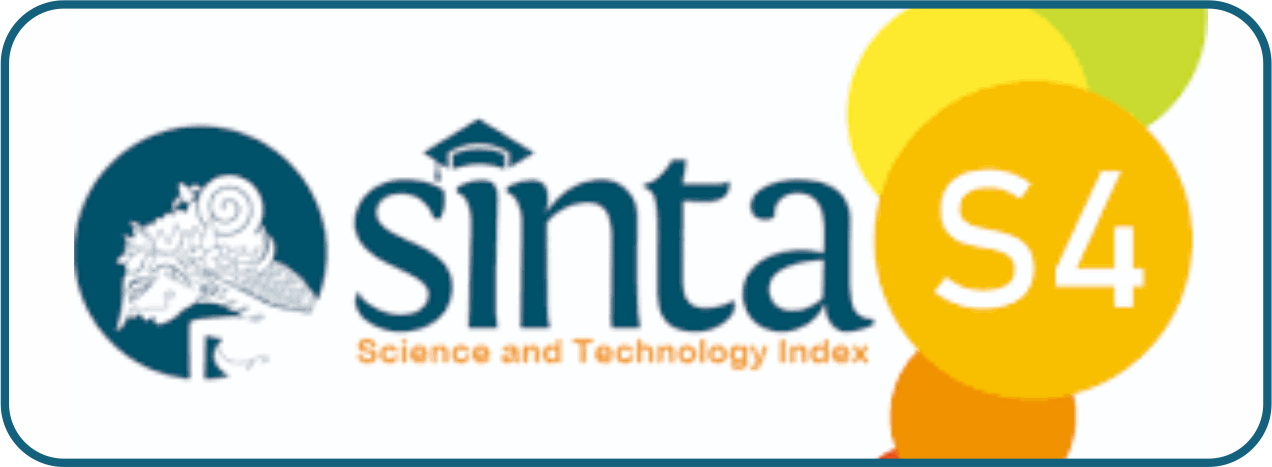Sentiment Analysis of Twitter Users’ Opinion Data Regarding the Use of ChatGPT in Education
Abstract
This article presents a sentiment analysis of Twitter users' opinions regarding the use of ChatGPT in education. ChatGPT, an AI chatbot developed by OpenAI, has gained significant attention for its ability to provide detailed responses across various knowledge domains. However, concerns have been raised about its occasional inclusion of inaccurate information. This study aims to analyze the sentiment of Twitter users' opinions towards ChatGPT in education and evaluate its accuracy. The sentiment analysis process involves data crawling, labelling, preprocessing, sentiment analysis, and evaluation. Data is collected from Twitter using the RapidMiner Studio tool and labelled as positive or negative sentiment based on the presence of positive or negative words. Preprocessing techniques are applied to standardize and reduce the volume of words in the data. The sentiment analysis classification is performed using machine learning algorithms, specifically Naive Bayes and Support Vector Machine (SVM). The accuracy, precision, and recall of the classification models are evaluated. The sentiment analysis results provide insights into Twitter users' overall sentiment towards ChatGPT in education. This study contributes to understanding Twitter users' opinions and sentiments regarding using ChatGPT in education. The findings can be valuable for educators and policymakers in assessing the potential impact of ChatGPT on academic integrity and the educational landscape.
Keywords
Full Text:
PDFReferences
Surameery, N. M. S., and Shakor, M. Y. (2023). Use chatGPT to solve programming bugs. International Journal of Information Technology and Computer Engineering (IJITC), 3(01), 17-22.
Naumova, E. N. (2023). A mistake-find exercise: a teacher’s tool to engage with information innovations, chatGPT, and their analogs. Journal of Public Health Policy, 44(2), 173-178
George, A. S., George, A. H., and Martin, A. G. (2023). The environmental impact of AI: a case study of water consumption by chatGPT. Partners Universal International Innovation Journal, 1(2), 97-104.
Cooper, G. (2023). Examining science education in chatGPT: an exploratory study of generative artificial intelligence. Journal of Science Education and Technology, 32(3), 444-452.
Rospigliosi, P. A. (2023). Artificial intelligence in teaching and learning: what questions should we ask of chatGPT?. Interactive Learning Environments, 31(1), 1-3.
George, A. S., and George, A. H. (2023). A review of chatGPT AI's impact on several business sectors. Partners Universal International Innovation Journal, 1(1), 9-23.
Alhumaid, K., Naqbi, S., Elsori, D., and Mansoori, M. (2023). The adoption of artificial intelligence applications in education. International Journal of Data and Network Science, 7(1), 457-466.
Lee, P., Bubeck, S., and Petro, J. (2023). Benefits, limits, and risks of GPT-4 as an AI chatbot for medicine. New England Journal of Medicine, 388(13), 1233-1239.
Ouyang, F., Wu, M., Zheng, L., Zhang, L., and Jiao, P. (2023). Integration of artificial intelligence performance prediction and learning analytics to improve student learning in online engineering course. International Journal of Educational Technology in Higher Education, 20(1), 1-23.
Guerrero, D. T., Asaad, M., Rajesh, A., Hassan, A., and Butler, C. E. (2023). Advancing surgical education: the use of artificial intelligence in surgical training. The American Surgeon, 89(1), 49-54.
Fauzi, F., Tuhuteru, L., Sampe, F., Ausat, A. M. A., and Hatta, H. R. (2023). Analysing the role of chatGPT in improving student productivity in higher education. Journal on Education, 5(4), 14886-14891.
Ahmad, N., Murugesan, S., and Kshetri, N. (2023). Generative artificial intelligence and the education sector. Computer, 56(6), 72-76.
Giuggioli, G., and Pellegrini, M. M. (2023). Artificial intelligence as an enabler for entrepreneurs: a systematic literature review and an agenda for future research. International Journal of Entrepreneurial Behavior and Research, 29(4), 816-837.
Rahman, M. M., and Watanobe, Y. (2023). ChatGPT for education and research: opportunities, threats, and strategies. Applied Sciences, 13(9), 5783.
Tlili, A., Shehata, B., Adarkwah, M. A., Bozkurt, A., Hickey, D. T., Huang, R., and Agyemang, B. (2023). What if the devil is my guardian angel: chatGPT as a case study of using chatbots in education. Smart Learning Environments, 10(1), 15.
Yang, T. C. (2023). Application of artificial intelligence techniques in analysis and assessment of digital competence in university courses. Educational Technology and Society, 26(1), 232-243.
Munawir, M., Rendy, P. K., Lia, N. F., and Bart, D. (2020). Place branding reputation by online reviewers' perceptions using sentiment analysis of thematic park in Bandung city, Indonesia. JAILCD, 1(1), 211-216.
Munawir, B. D., and Fritz, A. N. (2017). Sustainable urban planning based on sentiment analysis on twitter. JAILCD, 1(1), 281-284.
Munawir, Koerniawan, M. D., and Dewancker, B. J. (2019). Visitor perceptions and effectiveness of place branding strategies in thematic parks in Bandung city using text mining based on google maps user reviews. Sustainability, 11(7), 1-20.
Suryaningrum, K. M. (2023). Comparison of the TF-IDF method with the count vectorizer to classify hate speech. Engineering, Mathematics and Computer Science (EMACS) Journal, 5(2), 79-83.
Kandhro, I. A., Jumani, S. Z., Lashari, A. A., Nangraj, S. S., Lakhan, Q. A., Baig, M. T., and Guriro, S. (2019). Classification of sindhi headline news documents based on TF-IDF text analysis scheme. Indian Journal of Science and Technology, 12(33), 1-10.
Luthfi, M. F., and Lhaksamana, K. M. (2020). Implementation of TF-IDF method and support vector machine algorithm for job applicants text classification. Jurnal Media Informatika Budidarma, 4(4), 1181-1186.
Hendriyana, H., Karo, I. M. K., dan Dewi, S. (2022). Analisis perbandingan algoritma support vector machine, naive bayes dan regresi logistik untuk memprediksi donor darah. Jurnal Teknologi Terpadu, 8(2), 121-126.
DOI: https://doi.org/10.17509/coelite.v2i2.59645
Refbacks
- There are currently no refbacks.
Journal of Computer Engineering, Electronics and Information Technology (COELITE)
is published by UNIVERSITAS PENDIDIKAN INDONESIA (UPI),
and managed by Department of Computer Enginering.
Jl. Dr. Setiabudi No.229, Kota Bandung, Indonesia - 40154
email: coelite@upi.edu
e-ISSN: 2829-4149
p-ISSN: 2829-4157




